Have you ever caught your cat sitting silently by the door, gazing up with those big, mysterious eyes? It almost feels like they’re keeping a secret, or maybe plotting their next adventure. For many cat owners, this behavior is both enchanting and bewildering. What are they waiting for? Is it about freedom, curiosity, or maybe something deeper? Let’s unravel the truth behind this classic feline mystery and discover what’s actually going on in the mind of your whiskered companion.
The Call of Curiosity

Cats are natural explorers—tiny adventurers fueled by endless curiosity. When your feline waits at the door, it’s often because they’re eager to see what lies beyond. The unknown is like a siren song for a cat. The smells, sights, and sounds on the other side are simply irresistible. Every creak, shadow, or gust of air is an invitation to explore. For indoor cats, the door becomes a barrier to a world full of wonder. It’s like standing at the edge of a forest, wondering what magic hides among the trees. This longing to explore is hardwired into their DNA, a leftover from their wild ancestors.
Territorial Instincts on Display

Cats are fiercely territorial, and your home is their kingdom. When they sit by the door, it might be their way of guarding their realm. They listen for strange noises or sniff for unfamiliar scents creeping under the door. This vigilance is about keeping their territory safe from “intruders,” even if those intruders are just the mail carrier or a drifting leaf. Their posture by the door is like a sentry standing guard—alert, ready, and utterly devoted to their turf. It’s a natural behavior that makes them feel secure and in control of their environment.
Waiting for Their Favorite Human

Sometimes, a cat’s vigil at the door is about love. If you leave the house, your cat may wait by the door for your return. They recognize the sound of your footsteps and the jingle of your keys. This isn’t just about food or routine—it’s a sign of genuine attachment. For some cats, waiting at the door is their way of showing loyalty and longing, a quiet reminder that you’re missed when you’re gone. It’s a touching, sometimes heartbreaking display of feline affection that many owners don’t realize is happening.
Hunger and Expectation
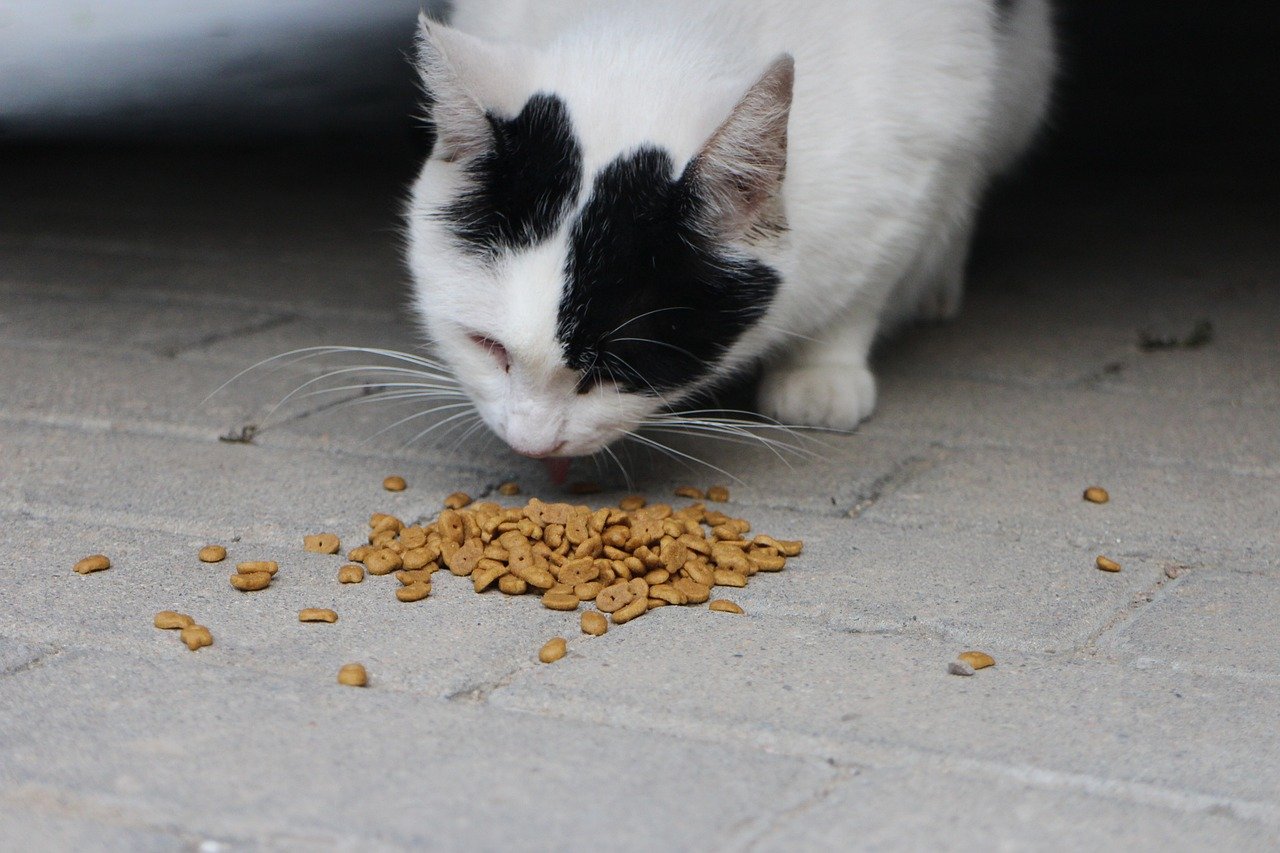
Cats are clever creatures who quickly learn routines. If you feed your cat at a certain time, or if the door leads to where their food is kept, they’ll associate the door with mealtime. Waiting at the door can become a ritual of expectation. Their internal clock is shockingly accurate, so don’t be surprised if their “door wait” coincides perfectly with breakfast or dinner. It’s their way of reminding you, in the most patient way possible, that their stomach is rumbling. A cat’s hunger can be a powerful motivator for this mysterious behavior.
Responding to Outside Stimuli

The world outside your door is alive with action—birds chirp, dogs bark, and cars zoom by. Your cat’s super-sensitive hearing and keen sense of smell pick up on all these things, even if you don’t notice them. When your cat waits at the door, they might be reacting to something specific happening outside. Maybe there’s a squirrel in the yard, or a neighbor’s cat is prowling nearby. Their focused stance, twitching tail, and alert ears are all signs that they’re tuned in to something you can’t see or hear.
Desire for Freedom

Some cats simply crave freedom. The door represents a threshold between safety and adventure. For indoor cats, the desire to dash outside can be overwhelming. They might paw at the door, meow, or even try to slip out when it opens. This isn’t just mischief—it’s an expression of their wild, independent spirit. The longing for freedom is a powerful urge that connects them to their untamed ancestors. Even the most pampered house cat sometimes dreams of chasing butterflies in the sun.
Curiosity About Other Pets

If you have multiple pets, especially if some are allowed outside and others aren’t, your indoor cat might wait at the door to watch their furry siblings come and go. The door becomes a stage where they can observe the comings and goings of their fellow animals. Watching another pet disappear into the great outdoors or return with new scents can spark jealousy or curiosity. Your cat may wait by the door, hoping for their own turn or simply to greet their friend when they return.
Chasing Sunbeams and Temperature Swings

Cats love warmth, and they’re experts at finding the perfect sunbeam. Sometimes, waiting by the door is just about enjoying a patch of sunlight that streams in from a window or the crack under the door. Doors are also points where temperatures change—cool breezes in summer or warmth in winter can be very appealing to a cat. This simple comfort might be all it takes to lure your feline to the doorway, transforming it into their own personal spa.
Habit and Routine
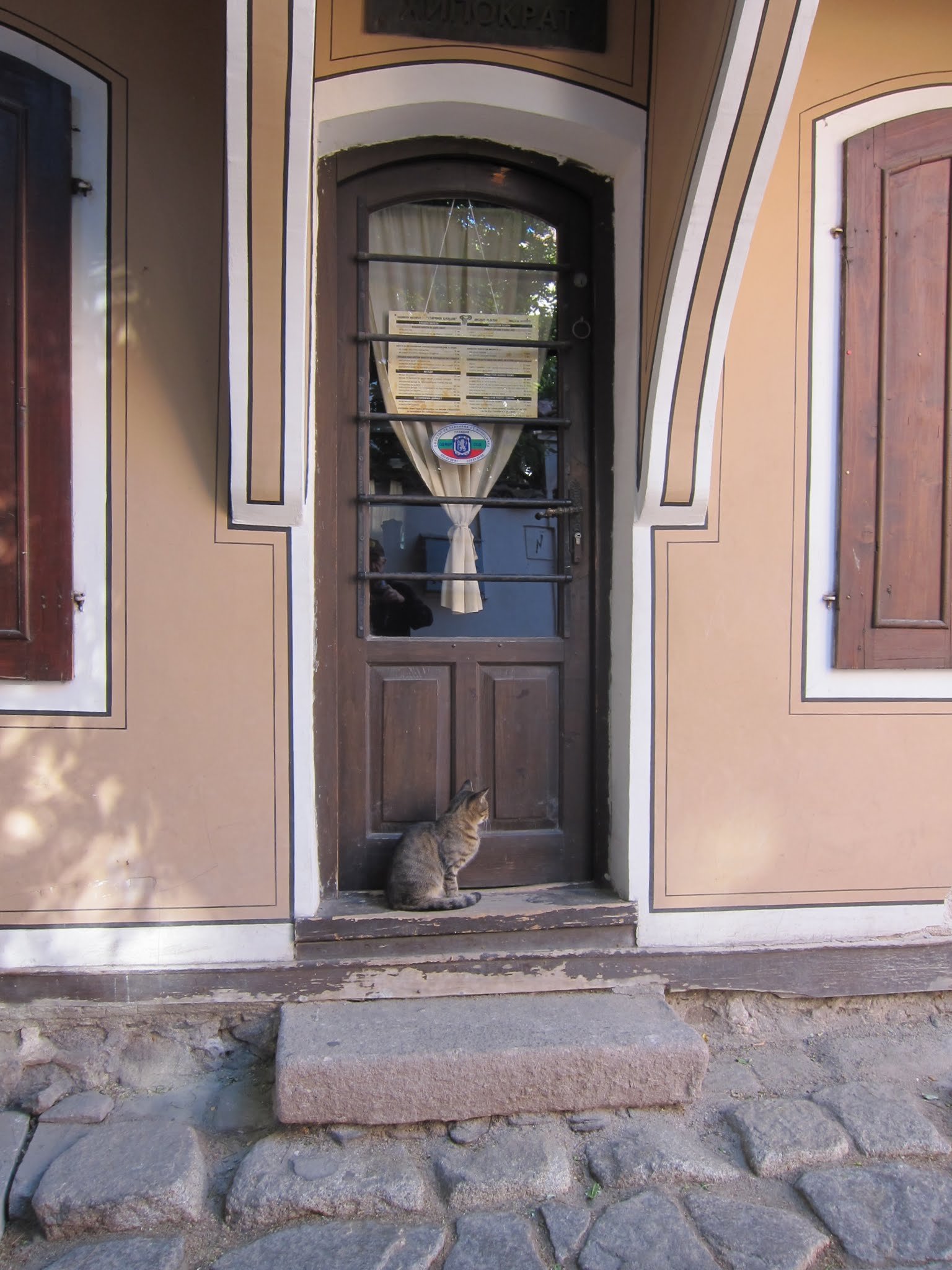
Cats are creatures of habit. If something interesting happened by the door once—a favorite toy rolled under it, a treat was handed over, or a loved one came home—they may return to the spot, hoping for a repeat. Over time, this behavior can become a ritual. They may not even remember why they started waiting there, but it’s now part of their daily routine. Like us checking our phones out of habit, cats return to familiar spots, even if the original reason has long since vanished.
Marking Their Territory
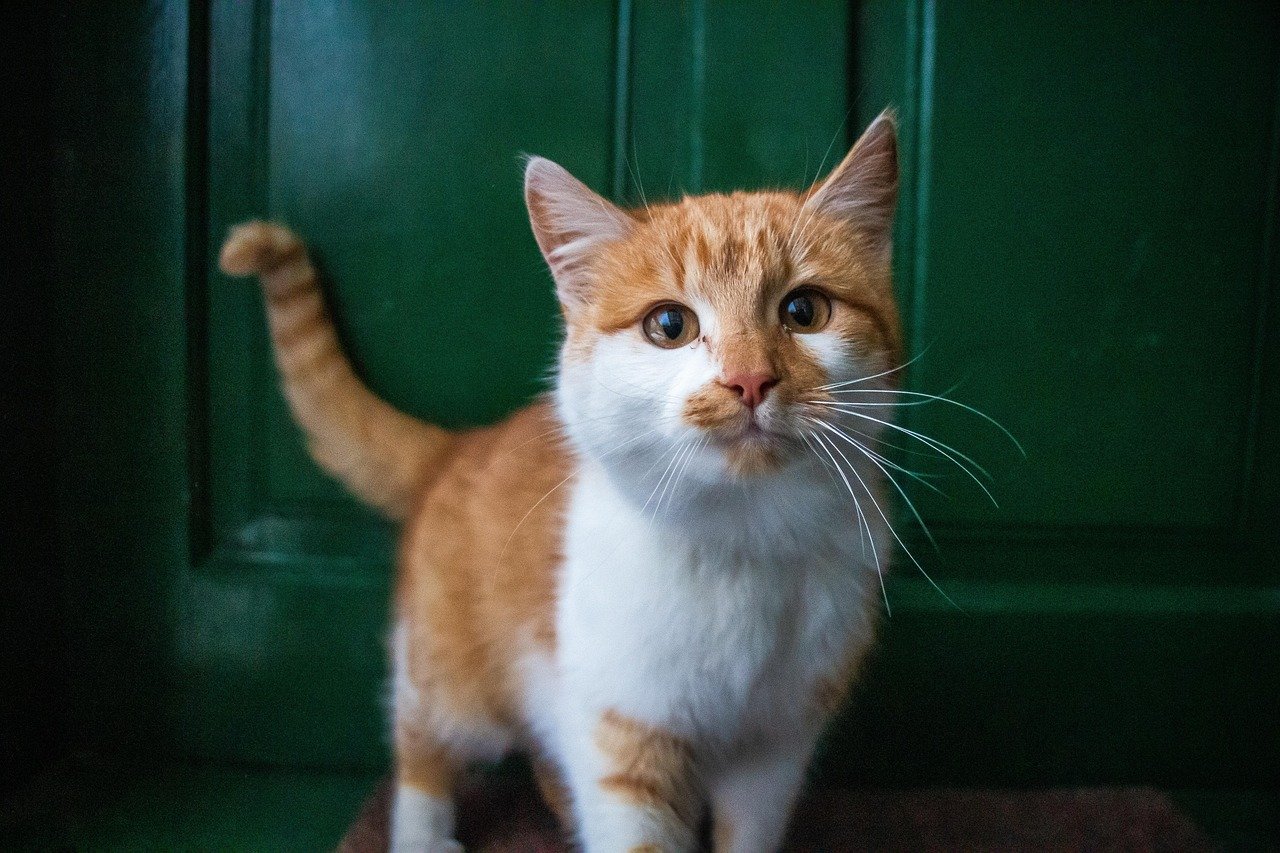
Scent is everything to a cat. By rubbing their cheeks or body against the door, they’re marking it with their unique scent. This is their way of claiming the space and feeling at home. Even sitting by the door can leave behind a subtle trace of their presence. It’s a comforting act, making the door—and everything beyond it—feel just a little bit more like theirs. For cats, marking territory isn’t just about warning off others; it’s about creating a safe, familiar world.
Seeking Stimulation and Entertainment
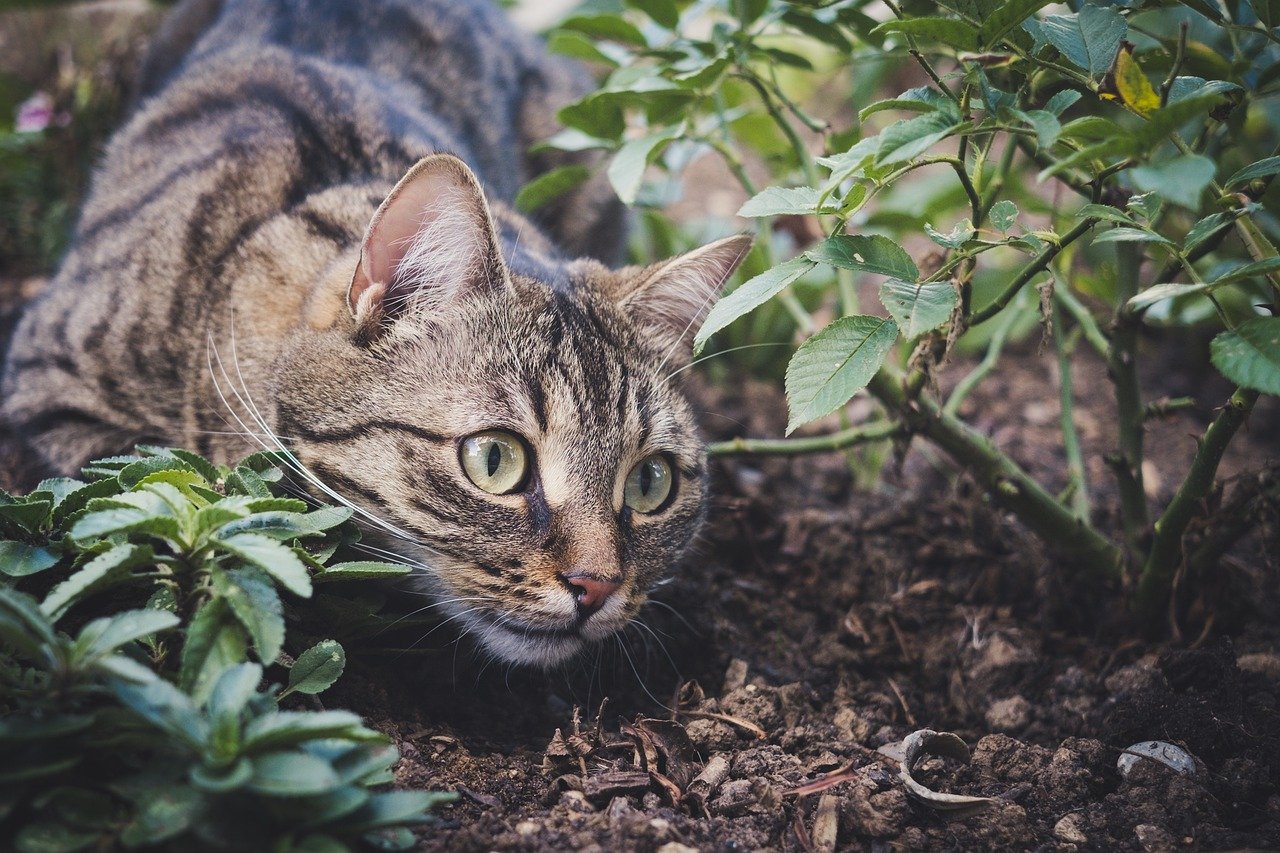
Indoor life can get pretty dull for a cat. The door is like a window to a TV channel filled with drama, action, and surprises. They might hear footsteps, voices, or the click of a key in the lock. The anticipation and unpredictability of what might happen next is entertainment in itself. For cats who crave stimulation, the door is a portal to endless possibilities, keeping their sharp minds active and engaged.
Loneliness and Social Needs
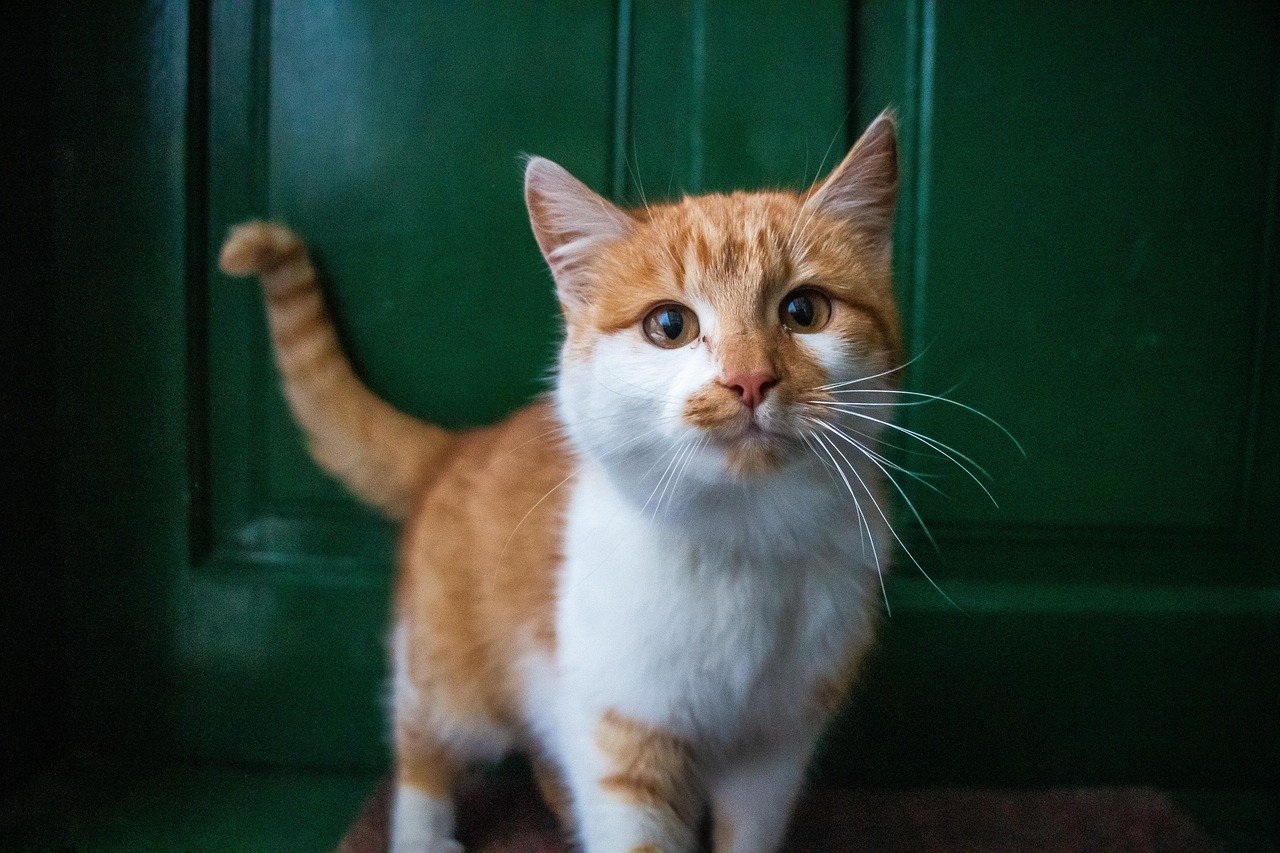
Cats might have a reputation for independence, but they’re not immune to loneliness. If the house is quiet or their favorite human is missing, waiting by the door can be a sign of longing for company. Even the sound of someone approaching can be enough to get them excited. This behavior is especially common in single-cat households or for cats who are particularly attached to their owners. The door becomes a place of hope, where reunions might happen at any moment.
Reacting to Change
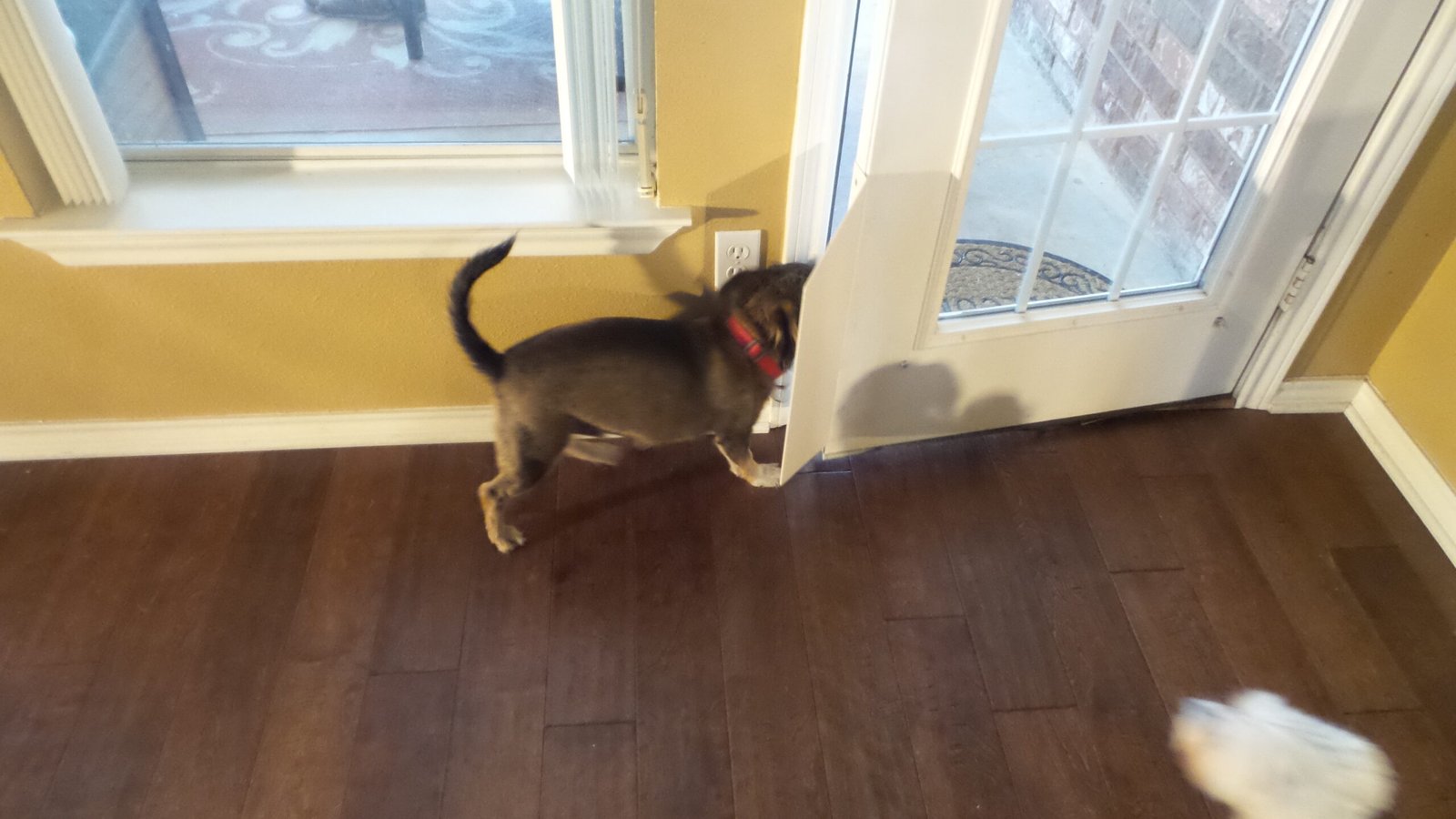
Cats are sensitive creatures who notice even the smallest changes in their environment. If you’ve recently moved furniture, added a new family member, or changed your routine, your cat might gravitate to the door as a way of seeking stability. The door is a constant—something familiar in a world that suddenly feels different. Their presence there can be a subtle signal that they’re feeling unsettled and are looking for reassurance.
Protective Behavior

Some cats take on the role of protector, especially in multi-pet households or busy neighborhoods. Waiting by the door can be their way of standing guard, making sure nothing dangerous slips inside. You might notice them perking up at unfamiliar sounds or bristling when someone approaches. This protective streak is a sign of their loyalty to their home and family, even if it sometimes looks a bit dramatic.
Training and Learned Behavior

Cats are quick learners. If waiting by the door gets them a reward—like attention, treats, or a trip outside—they’ll keep doing it. Sometimes, we reinforce this behavior without realizing it. A cat who meows by the door and is then let out or given a snack quickly learns that the door is the gateway to good things. Over time, this can turn into a regular, almost ritualistic behavior.
Escape Attempts and Mischief

Let’s face it: some cats are little escape artists. They wait by the door, studying every move, waiting for the perfect moment to dash outside. This can be nerve-wracking for owners, especially if you live near a busy street or in an area with wildlife. The thrill of the chase and the prospect of freedom can turn even the laziest cat into lightning on four paws. Their patience and cunning at the doorway are both impressive and a bit exasperating.
Responding to Seasonal Changes
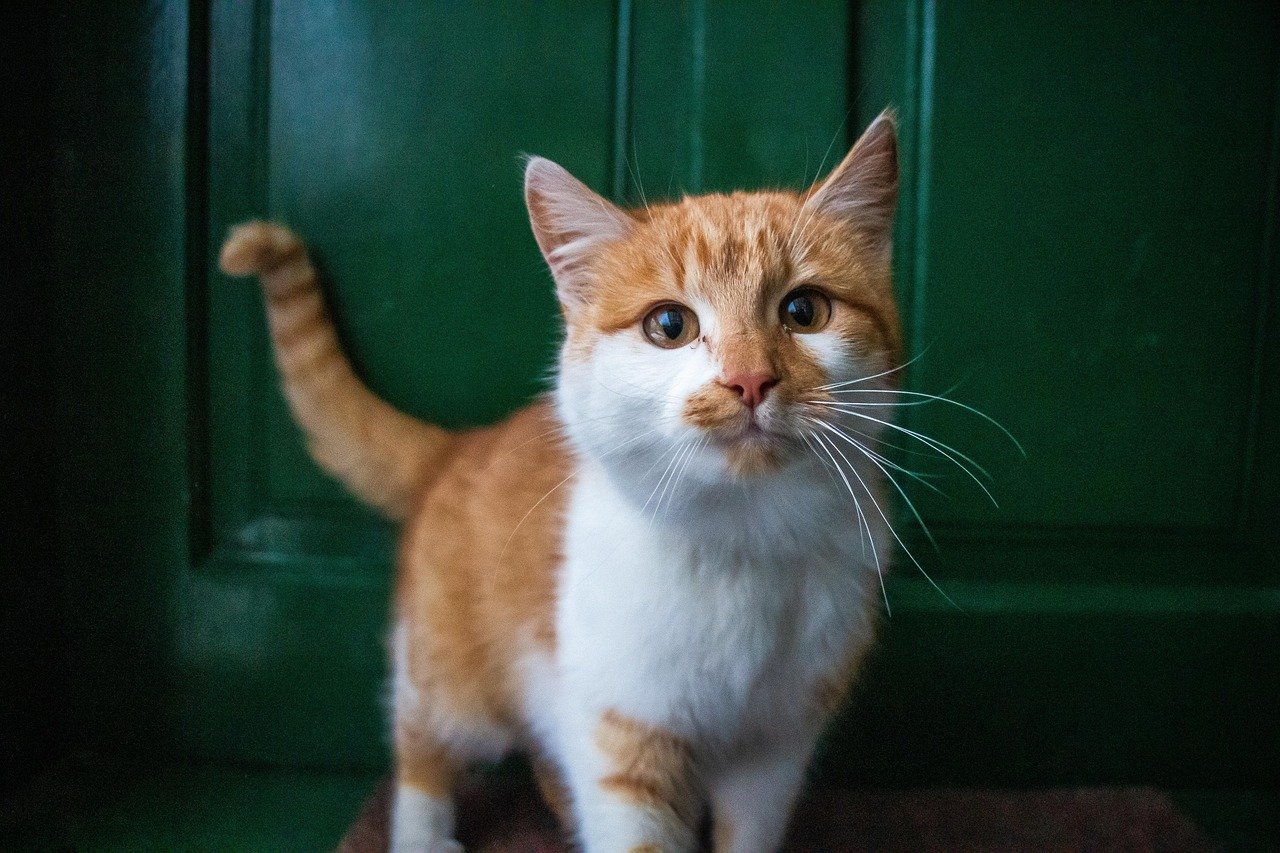
As the seasons change, so do the smells and sounds outside. In spring, birds and insects are everywhere, tempting your cat with new sights and scents. In winter, the cold air might carry unfamiliar smells or the promise of snow. Cats notice these subtle shifts and may wait at the door, eager to investigate. Their senses are finely tuned to the world around them, and the door becomes a front-row seat to nature’s changing show.
Special Needs and Medical Reasons
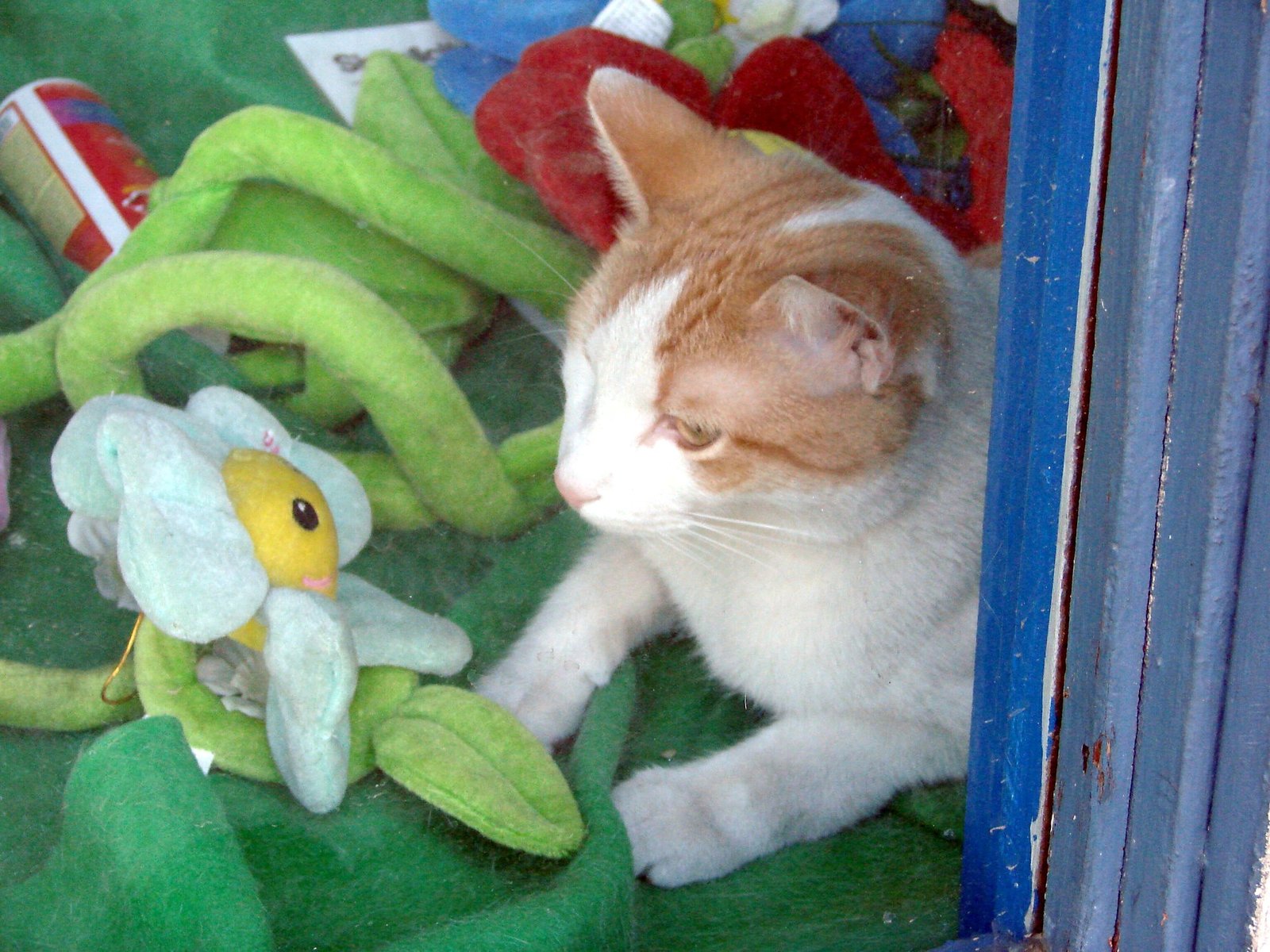
Sometimes, a cat’s behavior at the door signals a need that goes beyond curiosity. Older cats or those with certain medical conditions might wait by the door because they’re anxious, disoriented, or trying to find a quieter spot. Changes in this behavior—like increased restlessness or vocalization—can be signs that something’s wrong. If your cat suddenly starts obsessing over the door, it’s worth keeping an eye on their health and comfort.
Communication With You

Cats may not speak our language, but they’re excellent communicators. Waiting at the door can be a message just for you: “I want attention,” “Let me out,” or “I’m ready for something new.” Their body language—the way they sit, their tail position, their vocalizations—are all clues to what they’re feeling. Learning to read these signals deepens the bond between you and your cat, turning these mysterious moments into meaningful connections.
Individual Personality Quirks

Just like people, every cat is different. Some are naturally more curious, others more cautious. For some cats, waiting at the door is a daily ritual; for others, it’s a rare event. Their unique personalities shape how they interact with the world—and with you. What might be a sign of boredom for one cat could be a display of affection in another. Embracing these quirks is part of what makes life with cats so endlessly fascinating.
When to Worry

While waiting at the door is usually harmless, sudden changes in your cat’s behavior can signal a problem. If your cat becomes obsessed with the door, shows signs of distress, or starts to act out, it’s worth paying attention. Sometimes the cause is simple boredom, but other times it can be a sign of anxiety, illness, or a need that’s not being met. Trust your instincts—after all, you know your cat better than anyone.
The mystery of why cats wait at the door is a blend of instinct, curiosity, love, and habit. It’s one of those little quirks that makes living with cats so endlessly surprising.
Hi, I’m Bola, a passionate writer and creative strategist with a knack for crafting compelling content that educates, inspires, and connects. Over the years, I’ve honed my skills across various writing fields, including content creation, copywriting, online course development, and video scriptwriting.
When I’m not at my desk, you’ll find me exploring new ideas, reading books, or brainstorming creative ways to solve challenges. I believe that words have the power to transform, and I’m here to help you leverage that power for success.
Thanks for stopping by, Keep coming to this website to checkout new articles form me. You’d always love it!






